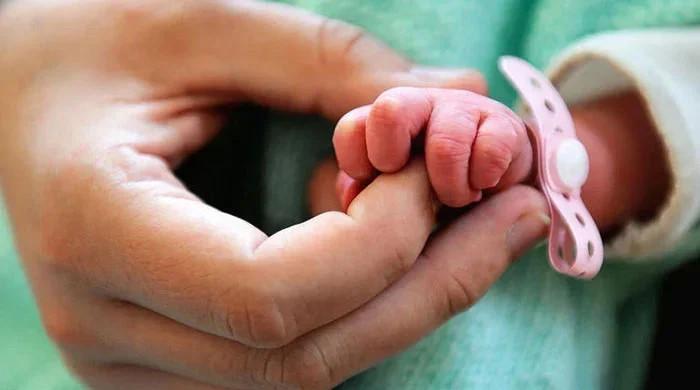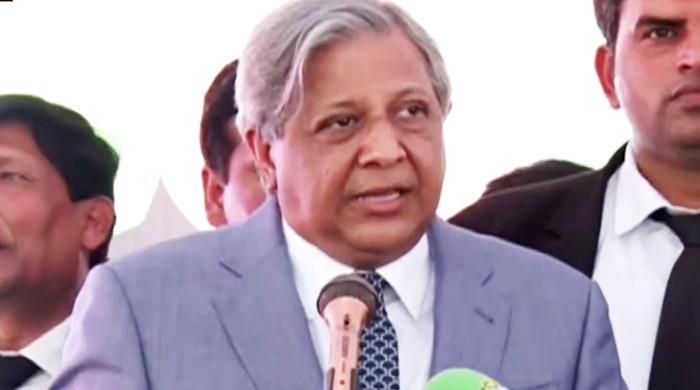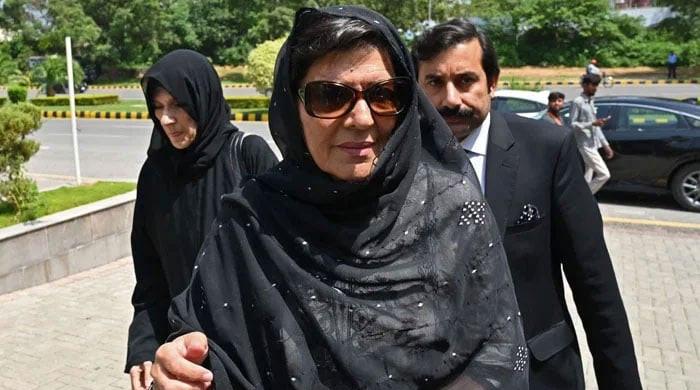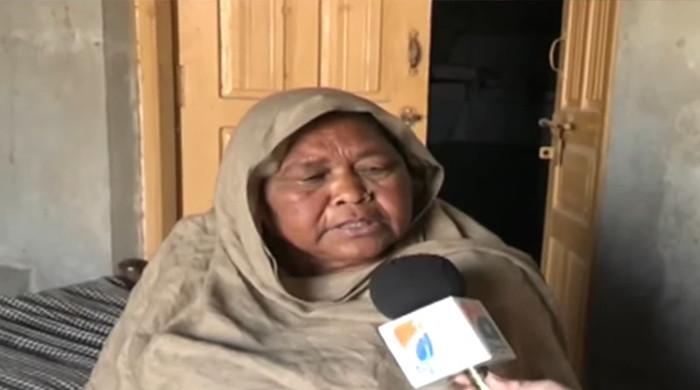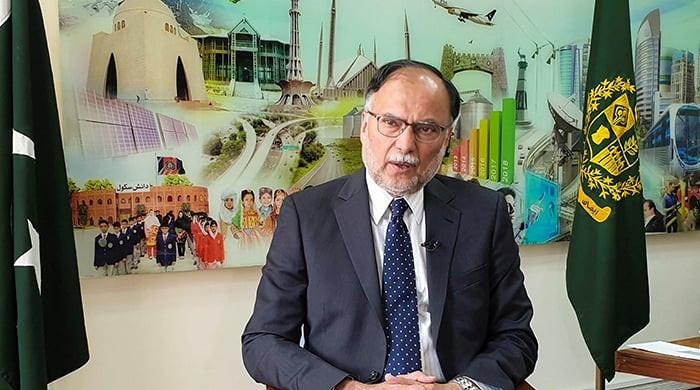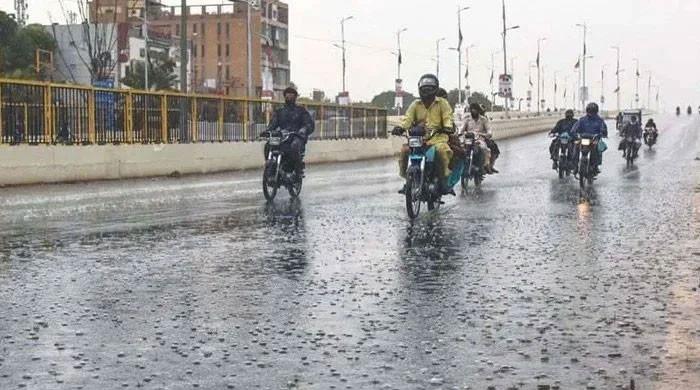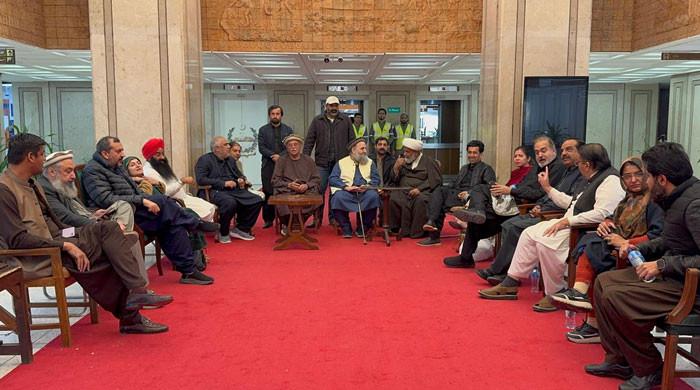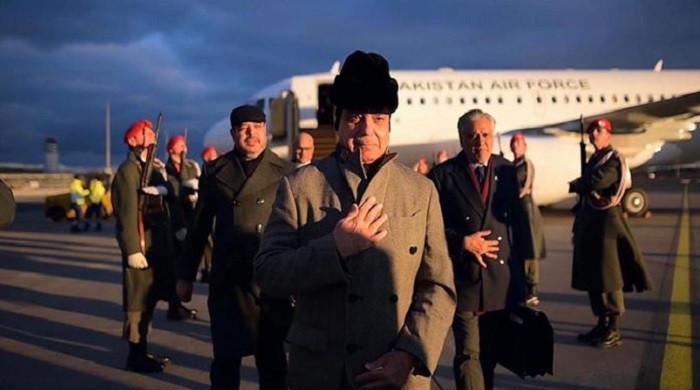Machh massacre: Shaikh Rasheed arrives in Quetta, holds high-level meeting
Sources say Shaikh Rasheed will fly to Balochistan's capital Quetta on PM Imran Khan's directives
January 03, 2021
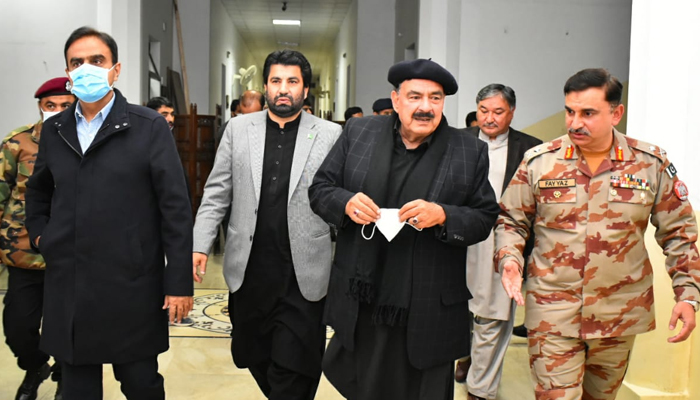
- Shaikh Rasheed to visit Quetta a day after Machh massacre
- Federal minister to fly via special flight on PM Imran Khan's instructions
- Interior Ministry seeks report on Machh massacre
- Balochistan Police CTD register a case against unidentified suspects
ISLAMABAD: Interior Minister Sheikh Rasheed Ahmed reached Quetta Monday evening and joined a sit-in organised by members of the Hazara community and families of the deceased coal miners a day after the Machh massacre when terrorists killed 11 colliers in Balochistan's Bolan district.
Sheikh Rasheed reportedly flew to Quetta — and arrived at the Western Bypass protest site — on Prime Minister Imran Khan's directives, sources had told Geo News earlier, adding that the interior minister would be briefed on the investigation into the miners' murder.
The minister was accompanied by National Assembly Deputy Speaker Qasim Khan Suri and Balochistan's chief secretary.
"On Prime Minister Imran Khan's special instructions, I arrived in Quetta alongside Federal Interior Minister Sheikh Rasheed to share the grief of the families of the martyrs of the Machh tragedy, assure our Hazara community of immediate justice, and to review the security situation," Suri wrote on Twitter.
The NA's deputy speaker underlined that a high-level meeting presided over by the interior minister was held to provide immediate justice to the families of the martyrs of the Machh tragedy. Balochistan Interior Minister Mir Ziaullah Langau, Abdul Khaliq Hazara, provincial chief secretary, and the inspector-general of Frontier Corps, among others, participated in the meeting, he added.
The interior ministry has also sought a report on the massacre.
CTD books unidentified suspects
Meanwhile, the Balochistan Police Counter-Terrorism Department (CTD) registered a case under Section 7 of the Anti-terrorism Act 1997 (ATA) against unidentified suspects at the CTD's Naseerabad station.
Read more: Miners killed in Machh massacre in Balochistan to be laid to rest today
As per the CTD, the case was lodged on behalf of Machh station house officer (SHO) some 30 hours after the terror incident. It also included Sections 302, 147, 148, and 149 among the clauses.
'Killings will spread' decisive action not taken
Thousands of mourners from the Hazara community in Pakistan on Monday protested alongside the bodies of miners killed in the Machh massacre.
The 10 colliers were kidnapped before dawn on Sunday as they slept near the remote coal mine in the southwestern mountainous Machh area — 60 kilometres southeast of Quetta, Abid Saleem, a local government official, said.
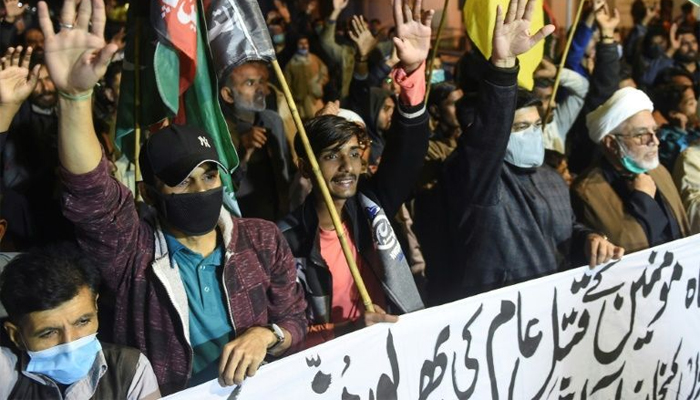
Up to 2,500 protesters gathered with eight of the bodies in coffins and blocked a bypass on the outskirts of Quetta, capital of the oil- and gas-rich Balochistan province, demanding justice.
"We will not end our protest until the arrest of all the assassins," Balochistan Shia Conference (BSC) President Syed Dawood Agha told AFP.
"The latest wave of killings will spread to other cities including Quetta if a decisive action is not taken at this stage," Agha added.
Officials revise death toll
Security officials who requested anonymity told AFP the attackers first separated the miners before tying their hands and feet and taking them into the hills to kill them. At least four were beheaded, they added.
Two of the miners were Afghans and their bodies have been sent to Afghanistan for burial, a local security official confirmed to AFP.
Also read: Hazara community launches protests in Quetta over Machh massacre
Officials on Monday clarified ten people had died in the attack, revising a previous death toll of 11.
The Hazara community form a part of the population in Quetta, the capital of Balochistan — the country's largest and poorest region that is rife with violence and insurgencies. It has proven to be particularly vulnerable, making them easy targets for extremists.
Though Pakistan's mines are notorious for poor safety standards, such attacks against miners are rare.




